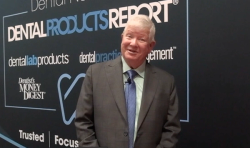- About Us
- Advertise
- Editorial
- Contact Us
- Terms and Conditions
- Privacy Policy
- Do Not Sell My Personal Information
© 2025 MJH Life Sciences™ and Dental Products Report. All rights reserved.
The Dental Products Report 2023 Materials Survey: Material Matters
Durability and esthetics remain top characteristics that clinicians look for when selecting restorative materials.
Dentists have no shortage of options when it comes to restorative materials. As technology advances, clinicians have a seemingly never-ending supply of improved products to choose from. This makes it even more important for clinicians to use materials that meet certain esthetic, strength, and durability criteria.
The Dental Products Report® 2023 Materials Survey asked approximately 150 dentists which materials they use day in and day out for restorative cases. The results offer insights into how dental professionals select materials and which ones they use. Approximately 70% of survey respondents are practice owners and approximately 77% have 20-plus years of experience in the industry. Survey results have been rounded to the closest whole number.
Deciding Factors
Durability ranked as the most important factor when choosing a new material, with nearly 63% of survey respondents saying it is their first consideration. This is in line with the 2022 results, although that percentage has decreased in 2023. Clinical research data was the next most important factor, according to just over 56% of respondents, showing that supporting evidence remains valuable among clinicians. Other factors dentists look for in new materials are esthetics, ease of use, and bioactivity/compatibility.
Stocking Up
Keeping inventory stocked ensures you will always have the materials needed for your restorative cases. Data from this year’s survey showed that at least 50% of clinicians keep 2 to 3 types of composites, glass ionomers, resin cements, adhesives, and primers in their inventory. This is closely in line with results from 2022, which indicated that 49% of dentists kept 2 to 3 types of these products in their reserves.
Communication
A majority of clinicians—approximately 67%—reported that they sometimes, but not always, explain what materials they are using to their patients. This number is up from 54% last year. About 32% of clinicians say they always explain materials to patients, and 0% never speak to patients about restorative materials, a drop from 7% year over year.
Trying Something New
More than half of respondents reported that their practices try new materials at least once a month or more. This shows that clinicians are not willing to settle for products that do not meet expectations and that they continually try to improve results and techniques. The number of clinicians who said they almost never try new materials dropped from 3% last year to 0% this year, reinforcing the idea that dentists are on the lookout for newer, enhanced materials.
Take Your Pick
When respondents were asked which options met their expectations for various materials, composites came out on top, with nearly 66% of participants reporting that composites somewhat exceeded or exceeded expectations. Coming in a close second were adhesives with just over 64%. Adhesives also scored the highest in the “exceeds expectations” category with 19.4%. Glass ionomers were the only material that rated votes in the “does not meet expectations” category.
Research Reigns
Just as in previous years, respondents consider research findings and an evidence-based approach before trying new materials; approximately 47% look for published research data before making any purchasing decisions. The percentage of respondents who consider themselves early adopters increased slightly from last year, at 24% in 2023 vs approximately 21% in 2022.

 Download Issue: Dental Products Report May 2023
Download Issue: Dental Products Report May 2023

